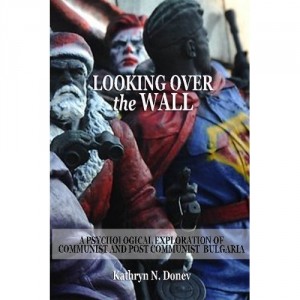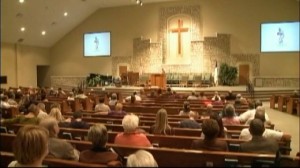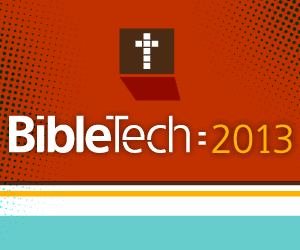Azusa Lecture, Spirit of Azusa Award to be Presented
![pic-c_thomas[1]](http://ourcog.org/wp-content/uploads/2012/10/pic-c_thomas1.jpg) On Tuesday, October 30, 2012, the annual Azusa Lecture Series will take place and will include a lecture by John Christopher Thomas and presentation of the Spirit of Azusa Award to Dr. French Arrington. The event will take place at 7:00 P.M. at the North Cleveland Church of God Bryant Fellowship Hall and is free and open to the public.
On Tuesday, October 30, 2012, the annual Azusa Lecture Series will take place and will include a lecture by John Christopher Thomas and presentation of the Spirit of Azusa Award to Dr. French Arrington. The event will take place at 7:00 P.M. at the North Cleveland Church of God Bryant Fellowship Hall and is free and open to the public.
On April 14, 1906, a group of African Americans under the leadership of William J. Seymour established a mission at 312 Azusa Street in Los Angeles, California. They had been holding services at a nearby home on Bonnie Brae Street, but when people began to speak in tongues and experience divine healings the crowds became too great for the residential neighborhood. Spiritual expectation, newspaper articles, and the San Francisco earthquake four days later increased attention to what God was doing in the small mission. Soon people began arriving from around the world to seek their personal “Pentecost.” Many were compelled to take the message to the nations, birthing the greatest missions movement in the history of Christianity. Individuals, congregations and denominations were swept into the new Pentecostal Movement. When mainline Protestant and Roman Catholic Christians also began to experience the baptism of the Holy Spirit, the twentieth century came to be called “The Century of the Holy Spirit.”
Speaker John Christopher Thomas is the Abbott Professor of Biblical Studies at the Pentecostal Theological Seminary and serves as associate pastor of the Woodward Avenue Church of God in Athens, Tennessee. A founding editor of the Journal of Pentecostal Theology, Thomas edits the journal’s supplemental series of books and is general editor of the Pentecostal Commentary Series. An internationally recognized Bible scholar, Thomas directs the Centre for Pentecostal and Charismatic Studies at Bangor University in Wales as well as the Centre for Pentecostal Theology in Cleveland, Tennessee. Among his seven books is the newly released commentary on the Book of Revelation, The Apocalypse.
Spirit of Azusa Award recipient French L. Arrington is Professor Emeritus of New Testament Greek and Exegesis at the Pentecostal Theological Seminary, having served for 21 years on that faculty as well as 17 years at Lee College. While at Lee, he was chairman of the Bible and Theology Department and honored with the Excellence in Teaching Award. A former pastor, Arrington has written extensively for ministerial and lay enrichment in the local church. His latest book is The Greatest Letter Ever Written: A Study of Romans.
Perry Stone: Nuclear War with Iran Prophecy (TBN January, 2012)
Perry Stone: Nuclear War with Iran Prophecy (TBN January, 2012) | The Vision (Re: attacks, Iran etc)
PERRY STONE’s website and email
On Tuesday night, January 24, I was host on the Trinity Broadcast Network (TBN). Our guests were Dr. Ron Phillips, Bishop Paul Zink and Damon Thompson.
Each one brought a very significant right now message for the Body of Christ, especially the church in North America. During the final portion of the program, I was asked to minister and used the last 21 minutes to share with the global audience a vision the Lord gave me many years ago. While this vision has not yet occurred, it may hold a clue to a future conflict with Iran. My partners and close friends have heard me share this on numerous occasions, and I will share a brief version now.
In the dream or vision I was standing on the porch of our home and in the distance to the left I saw a large nuclear cooling tower beginning to spin near a coast line. A second one was in the distance and it too began spinning like a tornado. In between the place where I was standing and where the two nuclear cooling towers were stood two tall trees – if you could call them trees. Both were the same height, very tall, and bleached white. There were no leaves and no branches on either tree. Years ago when I asked my father what was the meaning of the two trees, he referred back to the dream of Nebuchadnezzar, when this king of Babylon dreamed of a large tree, providing food, shade and protection and could be seen around the earth. In the dream this tree was Nebuchadnezzar and was cut down by a guardian angel. In the narrative, there was a one year time frame from the king’s dream to the fulfillment (see Daniel chapter 4). Dad said the trees could be either two people (leaders) involved with the nuclear cooling tower that will be “stripped” of authority as a result, or may refer to radiation damaging trees, or a time frame of two years.
Dad also alluded to a dream that he had as a young man, in which he saw seven trees growing in a coal mind. A hand reached down and snapped each tree, one at a time. Exactly seven days later, a close relative passed away that had worked in the coal mines. Each tree was a time frame; in this case each tree was one day.
I then saw a large field, which in the New Testament, the “field is the world” (Matt. 13:38). In this field to the right, were a large set of bulls – whose horns looked like the horns on a Texas longhorn bull. Their skin was the same type of skin found on a Holstein cow, which is a milk cow. These bulls were running south, the moment the nuclear towers began spinning. I believed in the dream this represented the stock market, or the “bull market” that would be impacted by these events.
…in the distance to the left I saw a large nuclear cooling tower beginning to spin near a coast line.
When I saw this years ago, there was no indication of Iran’s nuclear program. However, the Iranian regime has announced they will not stop their nuclear development and have openly said if they had nuclear bombs they would use it on Israel, and even the United States. The fact is, Iran cannot be allowed to make a bomb, as this would be the greatest danger to the entire world. Late last year, I began receiving information that a strike on Iran’s nuclear facilities is highly possible this year (2012). If so, then the greatest danger to the United States is a huge spike in oil prices that would impact everything from food cost, transportation costs, buses for schools and even postage and air travel. Literally everything will be impacted by the rise of the cost of oil.
During the TBN program I shared basic information that a person can follow that would help make such a crisis at least more bearable to endure than if a person was unprepared.
To the Church:
• Every church should begin organizing small home groups in the event people are unable to attend evening services.
• Every church should prepare the names and all information on the elderly members and especially the members who are widows indeed. The local church must care for those who are unable to care for themselves.
•Every church should have two feeding programs: one for the unchurched and one for those of the household of faith who are in serious need. Each member can provide cans of food when attending church, as this can become part of the feeding and care ministry.
•Every church, if possible, needs a special fund to assist any dedicated members who may hit a crisis and need small amounts of financial assistance. Again, this is for those who have been faithful to God and his kingdom in the past.
To the Individuals:
• Know your neighbors and form a community watch to watch the homes and property of others when needed
• Prepare in every way as though you are in a very long winter storm and unable to get out
• Have an additional supply of cash – in smaller bills – in a secure and safe place
• In certain cities and areas, have a plan of protection for your family
• If investing, know your investments and do not place money in anything that can be shaken in the event of a war in the Gulf, etc.
The National Level:
• Our leaders must understand that Israel has a covenant with God and standing with Israel is standing with God’s covenant.
• In the event of a war, open our strategic reserves only as a final resort, and DO NOT offer to sell this fuel to Europe. Make no secret agreements that if Europe boycotts Iranian oil or products that the U.S. will cover them with our reserves. This will become a fatal mistake.
• The trucks delivering goods are diesel fueled, and diesel is higher in cost. The leaders of the nation must ensure that the truck industry that delivers food and needed goods continues to deliver, by ensuring diesel fuel is provided and remains at a more affordable cost – even with a spike in prices.
• If you live in a city with a 1-3 day supply of food (many in New York eat out and not at home), then you should have at least a 3 week supply of food in your apartment.
• If a conflict deteroiates, then the rail roads must be used for delivery and the routes must be set up in advance. Leaders should not wait until a crisis escalates but be proactive rather than reactive.
• The Church must be prepared to minister in every way as never before.
As I said on TBN, based upon a vision I had in the late 1990’s, we will recover from whatever is coming after a period of time. This vision was from the Lord, but Perry Stone’s interpretation can be fallable. However, from all I have seen and what I am hearing, the possible war in the Persian Gulf could fulfill the vision. God knows and time will tell. Visions are given not to scare you but to prepare you. God bless you.
P.S. Because you have called and asked for more information, you can order the audio CD (CD084) Warnings in Visions and Dreams by my father and me – where I share details of warnings as well as how believers can prepare for the last days.
Obama, Marxism and Pentecostal Identity
 Time and time again in the past several years, while ministering in churches across the United States, friends and partners ask us about our opinion on the political situation at home and around the world. Many of them ask the direct question of America becoming more and more socialist-like. Our response is that while people have the right to own a business, there cannot be communism, but this barely scratches the surface.
Time and time again in the past several years, while ministering in churches across the United States, friends and partners ask us about our opinion on the political situation at home and around the world. Many of them ask the direct question of America becoming more and more socialist-like. Our response is that while people have the right to own a business, there cannot be communism, but this barely scratches the surface.
“Looking over the Wall” answers this and many other important questions about the current global reality from a very distinct Pentecostal and the same time post communist point of view. Yet, the text does it in a way, which can actually relate to popular American culture and current economic reality. The book provides Christian answers as of what defines our identity and makes us human – a right communism strips from the persona, the family and the church without much regard of the consequences that follow.
But this drastic dehumanization has an almost irreversible effect on the human psyche – a slavery mentality that penetrates the very heart of men and women and leaves forever its mark of fear, depression and insecurity. The book traces how Pentecostalism as faith and ideology has the power to deliver post communist communities from the grasp of oppressive governments and transform them into a socially relevant culture changing force. At the same time, it remains a warning to theologians who dare to flirt with Marxist idealism being fulfilled in the context of the New Testament ecclesia. And rightfully so!
The book is a must read for any and all who are ministering or planning to minister in a post communist culture or among post communist groups regardless of their geographical locale. For the principles it shows are valid for post community mentality everywhere. Preview and purchase your copy directly at Amazon.com
The Pew Forum: Protestants no longer majority in U.S.
 A new study by the Pew Forum on Religion & Public Life found that Protestants now make up 48% of Americans, compared with nearly two-thirds in the 1970s.
A new study by the Pew Forum on Religion & Public Life found that Protestants now make up 48% of Americans, compared with nearly two-thirds in the 1970s.
The decline, concentrated among white members of both mainline and evangelical denominations, is amplified by an absence of Protestants on the U.S. Supreme Court and the Republican presidential ticket for the first time. “It’s a slow decline but a noticeable one,” said Cary Funk, a Pew senior researcher. Funk said a major factor driving the decline is an increase in religiously unaffiliated Americans to 20%, up from 15% five years ago.
Two-thirds of the religiously unaffiliated still say they believe in God. But they overwhelmingly expressed disenchantment with religious organizations for being too concerned with money, power, rules and politics.The study did not give reasons fewer Americans now identify with any religion. But it presented theories that included political backlash against the religious right, delays in marriage, broad social disengagement and secularization related to economic development.
Some analysts said a softening of American religiosity could affect such areas as charitable giving and volunteerism, which traditionally have been driven by churches. Others, however, said that ideals originally identified as Protestant and Puritan have become firmly entrenched as secular American virtues. The idea of America as a “city set on a hill” — a biblical phrase — with a special destiny to lead the world to freedom and democracy remains a bedrock civic value, said Richard Land of the 16-million-member Southern Baptist Convention, the nation’s largest Protestant denomination.
“America is a nation with the soul of a church, and that soul is Puritan-Protestant,” said Land, president of the convention’s Ethics & Religious Liberty Commission. “But in terms of defining the purpose of the nation, it’s been secularized long ago.” The study was based on a national survey of 2,973 adults conducted between June 28 and July 9 using land lines and cellphones. An additional 511 interviews were conducted with religiously unaffiliated adults.
In a counterweight to evangelical Christians who tend to back Republicans, the vast majority of religiously unaffiliated Americans — who number 46 million — vote Democratic and are politically liberal, the study found. Two-thirds support President Obama, compared with 27% for Republican nominee Mitt Romney. A majority of the unaffiliated support legal abortion and same-sex marriage.
The trend toward dropping away from organized religion was evident across gender, income and educational levels. But it was most apparent in the Northeast and West and among the young, the study showed. A third of adults under 30 have no religious affiliation, compared with just 9% among those 65 and older. Mark Chaves, a Duke University sociologist of religion, said some young people turn to churches when they marry and have children.
#BibleTech 2013
We’re already looking forward to BibleTech 2013, which will be held March 15 & 16 in Seattle, WA. This will be our fifth BibleTech conference, each one focused on the intersection of Bible study and technology. It’ll be of interest to anyone who wants to hear about the ways technology is affecting how we translate, interpret, communicate, and transmit the Scriptures.
 At BibleTech, you won’t just listen to speakers address the tech issues most important to you—you’ll also interact and network with industry leaders and others who share your interests. Plenty of BibleTech attendees initiated long-lasting friendships and working relationships at past conferences.
At BibleTech, you won’t just listen to speakers address the tech issues most important to you—you’ll also interact and network with industry leaders and others who share your interests. Plenty of BibleTech attendees initiated long-lasting friendships and working relationships at past conferences.
Wanted: A Few Good Presenters
Once again, we’re putting out a call for programmers, publishers, tagging experts, information and library scientists, technologists, thought leaders, design gurus, information architects, webmasters, and anyone else working at the intersection of the Bible and technology. Come lead conference sessions and round-table discussions! To be considered, all you have to do is fill out our Call for Participation form!
We’re going to get a lot of entries, so we encourage you to be as descriptive as possible when sharing your topic ideas. If you have multiple ideas for sessions, feel free to fill out multiple entries.
We’ll close the call for participation Friday, November 30, to give ourselves time to choose the best session speakers for next year. Please submit your topic by then!
Keep Up with the Latest BibleTech News
We’ll be updating the BibleTech website as things develop. If you want up-to-the-minute information, like BibleTech on Facebook and follow us on Twitter!
So, what do you eat over there?
 An introduction to Cooking Traditions of Bulgaria
An introduction to Cooking Traditions of Bulgaria
After 11 years of higher education and three earned degrees in theology, there is still one question I have difficulties answering. I stumble every time when inquiring of our missions work in Bulgaria or just interested in the local culture someone asks me, “So what do you eat over there?” My short answer generally is: “Food!” But that hardly covers it all.
Kathryn has done a fine job answering this question through her new book with 50 authentic Bulgarian recipes. This is not just what Bulgarians eat in general, but what we have eaten during our missionary travels sitting around the table of hospitable brothers and sisters in the Lord.
They are truly Pentecostal recipes. And not because they were served “in the Spirit,” but because they were often done through what I perceive to be the one true Pentecostal confessions of the Bible “Silver and gold have I none, but what I have I give unto you…” For many of them we have shared with brothers and sisters living in the complete poverty of the mission field, yet willing like the widow of Elijah’s time to share their last bread with the ministers of God.
This is what makes these recipes truly missional. I cannot say that I have personally cooked them, but I can assure you I have personally eaten them all and enjoyed everyone and each of them after five long services on Sunday, a three day church fast or a night of crossing the snow covered Balkan Mountains. I challenge you to cook some of them for your family or church and send us feedback about your experience with the answer of the question so many of you have asked me through the years. May be next time we see each other, we can ask you “How do you like what we eat over there?”
Preview and Purchase Your Copy at: Amazon.com
Looking Over the Wall: A Psychological Exploration of Communist and Post Communist Bulgaria
 Looking Over the Wall: A Psychological Exploration of Communist and Post Communist Bulgaria
Looking Over the Wall: A Psychological Exploration of Communist and Post Communist Bulgaria
This book is the result of over a decade of research and personal experiences of living in Bulgaria for the past seven years. It embodies documents, articles, personal interviews and essays dealing with psychological explorations of communist and post communist Bulgaria. Along with a historical overview of Bulgaria, the author presents the development of psychotherapy throughout the country and addresses future concerns for the state of counseling within a post communist context. Furthermore, the author examines the Pentecostal experience of the Bulgarian evangelical believer drawing on a paper presented at the 36th annual Society of Pentecostal Studies Conference. As well included is original research which develops a theoretical account of the sequences of internal motivation in addition to student survey results regarding counseling practices from the first Master’s in Chaplaincy Ministry Program in Europe at the Bulgarian Evangelical Theological Institute.
Preview and Purchase Your Copy at Amazon.com







